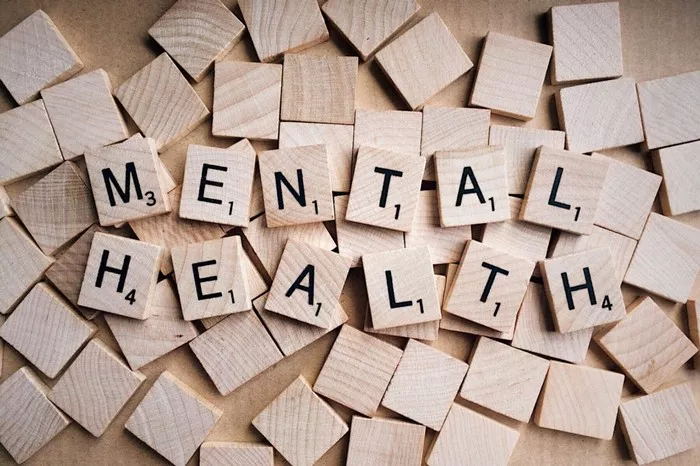Vitamins are essential nutrients that our bodies need to function properly. They play a vital role in maintaining good health and preventing disease. However, if you don’t get enough vitamins, it can lead to a variety of health problems. In this article, we will explore what happens if you don’t get enough vitamins.
Vitamin A:
Vitamin A is important for maintaining healthy eyesight, skin, and immune function. If you don’t get enough vitamin A, you may experience night blindness, dry skin, and an increased risk of infections.
Night blindness is a condition where you have difficulty seeing in low light or at night. It is a common symptom of vitamin A deficiency. Vitamin A is important for the production of rhodopsin, a pigment in the eyes that helps you see in low light.
Dry skin is another common symptom of vitamin A deficiency. Vitamin A is important for maintaining healthy skin, and a lack of vitamin A can lead to dry, flaky skin.
In addition, vitamin A is important for maintaining a healthy immune system. A lack of vitamin A can weaken your immune system, making you more susceptible to infections.
In severe cases, a deficiency in vitamin A can lead to blindness. This is particularly common in developing countries where diets are low in vitamin A-rich foods, such as fruits and vegetables.
Vitamin B1:
Vitamin B1, also known as thiamine, is important for maintaining healthy nerves and muscle function. If you don’t get enough vitamin B1, you may experience fatigue, muscle weakness, and nerve damage.
Thiamine is important for the metabolism of carbohydrates, which provides energy for your body. A lack of thiamine can lead to fatigue and muscle weakness.
In addition, thiamine is important for maintaining healthy nerves. A lack of thiamine can lead to nerve damage, which can cause numbness, tingling, and even paralysis.
Severe thiamine deficiency can lead to a condition called beriberi, which can cause heart failure, paralysis, and even death.
Vitamin B2:
Vitamin B2, also known as riboflavin, is important for maintaining healthy skin, eyesight, and red blood cell production. If you don’t get enough vitamin B2, you may experience skin rashes, eye problems, and anemia.
Riboflavin is important for the production of energy in your body. A lack of riboflavin can lead to fatigue and weakness.
In addition, riboflavin is important for maintaining healthy skin and eyesight. A lack of riboflavin can lead to skin rashes and eye problems, such as sensitivity to light.
Riboflavin is also important for the production of red blood cells. A lack of riboflavin can lead to anemia, which can cause fatigue, weakness, and shortness of breath.
Severe riboflavin deficiency can lead to a condition called ariboflavinosis, which can cause mouth sores, swollen tongue, and a sensitivity to light.
Vitamin B3:
Vitamin B3, also known as niacin, is important for maintaining healthy skin, nerves, and digestion. If you don’t get enough vitamin B3, you may experience fatigue, depression, and digestive problems.
Niacin is important for the metabolism of carbohydrates, which provides energy for your body. A lack of niacin can lead to fatigue and weakness.
In addition, niacin is important for maintaining healthy skin and nerves. A lack of niacin can lead to skin rashes and nerve damage, which can cause numbness, tingling, and even paralysis.
Niacin is also important for maintaining a healthy digestive system. A lack of niacin can lead to digestive problems, such as diarrhea and constipation.
Severe niacin deficiency can lead to a condition called pellagra, which can cause skin rashes, diarrhea, and dementia.
Vitamin B6:
Vitamin B6, also known as pyridoxine, is important for maintaining healthy brain function, immune function, and red blood cell production. If you don’t get enough vitamin B6, you may experience depression, confusion, and anemia.
Pyridoxine is important for the production of neurotransmitters, which are chemicals in the brain that regulate mood and behavior. A lack of pyridoxine can lead to depression and confusion.
In addition, pyridoxine is important for maintaining a healthy immune system. A lack of pyridoxine can weaken your immune system, making you more susceptible to infections.
Pyridoxine is also important for the production of red blood cells. A lack of pyridoxine can lead to anemia, which can cause fatigue, weakness, and shortness of breath.
Severe pyridoxine deficiency can lead to a condition called anemia, which can cause fatigue, weakness, and shortness of breath.
Vitamin B12:
Vitamin B12 is important for maintaining healthy nerve function and red blood cell production. If you don’t get enough vitamin B12, you may experience fatigue, weakness, and nerve damage.
Vitamin B12 is important for the production of myelin, a substance that covers and protects nerves. A lack of vitamin B12 can lead to nerve damage, which can cause numbness, tingling, and even paralysis.
In addition, vitamin B12 is important for the production of red blood cells. A lack of vitamin B12 can lead to anemia, which can cause fatigue, weakness, and shortness of breath.
Severe vitamin B12 deficiency can lead to a condition called pernicious anemia, which can cause fatigue, shortness of breath, and nerve damage.
Vitamin C:
Vitamin C is important for maintaining healthy skin, bones, and immune function. If you don’t get enough vitamin C, you may experience fatigue, muscle weakness, and an increased risk of infections.
Vitamin C is important for the production of collagen, a protein that is essential for healthy skin and bones. A lack of vitamin C can lead to skin problems, such as dryness and wrinkles, and bone problems, such as osteoporosis.
In addition, vitamin C is important for maintaining a healthy immune system. A lack of vitamin C can weaken your immune system, making you more susceptible to infections.
Severe vitamin C deficiency can lead to a condition called scurvy, which can cause skin rashes, joint pain, and tooth loss.
Vitamin D:
Vitamin D is important for maintaining healthy bones and teeth. If you don’t get enough vitamin D, you may experience bone pain, muscle weakness, and an increased risk of fractures.
Vitamin D is important for the absorption of calcium, a mineral that is essential for healthy bones and teeth. A lack of vitamin D can lead to weakened bones and an increased risk of fractures.
In addition, vitamin D is important for maintaining healthy muscles. A lack of vitamin D can lead to muscle weakness and pain.
Severe vitamin D deficiency can lead to a condition called rickets, which can cause soft, weak bones and deformities.
Vitamin E:
Vitamin E is important for maintaining healthy skin and immune function. If you don’t get enough vitamin E, you may experience muscle weakness, vision problems, and an increased risk of infections.
Vitamin E is important for protecting your body against oxidative damage, which can lead to cell damage and disease. A lack of vitamin E can lead to muscle weakness and vision problems.
In addition, vitamin E is important for maintaining a healthy immune system. A lack of vitamin E can weaken your immune system, making you more susceptible to infections.
Severe vitamin E deficiency is rare, but it can lead to a condition called ataxia, which can cause muscle weakness, poor coordination, and vision problems.
Vitamin K:
Vitamin K is important for maintaining healthy blood clotting. If you don’t get enough vitamin K, you may experience excessive bleeding and bruising.
Vitamin K is important for the production of clotting factors, which are proteins that help your blood clot. A lack of vitamin K can lead to excessive bleeding and bruising.
Severe vitamin K deficiency can lead to a condition called hemorrhagic disease of the newborn, which can cause bleeding in the brain and other organs.
Conclusion:
In conclusion, vitamins are essential nutrients that our bodies need to function properly. If you don’t get enough vitamins, it can lead to a variety of health problems. The best way to ensure that you are getting enough vitamins is to eat a balanced diet that includes a variety of fruits, vegetables, whole grains, and lean proteins. If you are concerned about your vitamin intake, talk to your healthcare provider about taking a vitamin supplement. Remember, it’s important to get enough vitamins to maintain good health and prevent disease.
[inline_related_posts title=”You Might Be Interested In” title_align=”left” style=”list” number=”6″ align=”none” ids=”4463,4458,4102″ by=”categories” orderby=”rand” order=”DESC” hide_thumb=”no” thumb_right=”no” views=”no” date=”yes” grid_columns=”2″ post_type=”” tax=””]
































